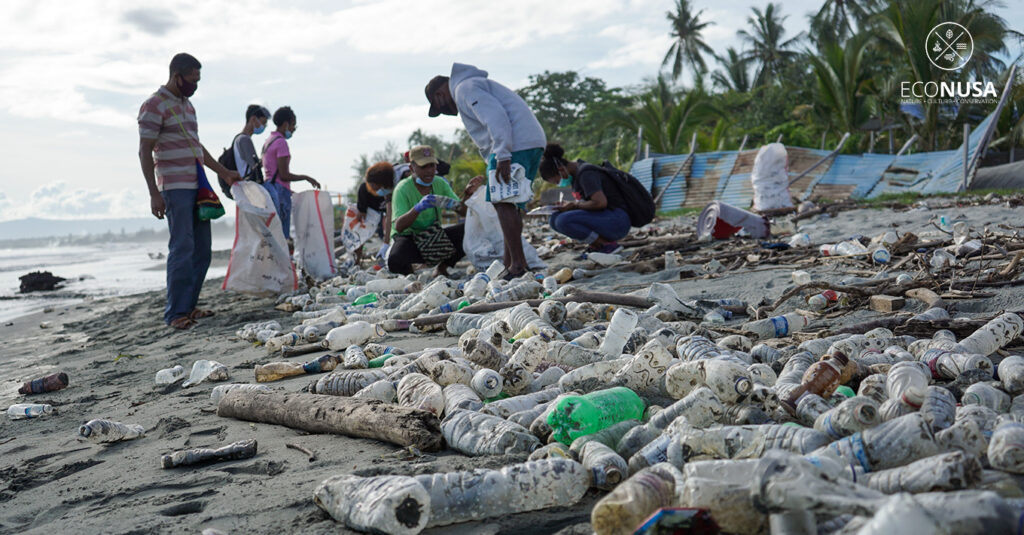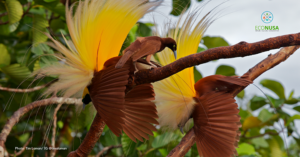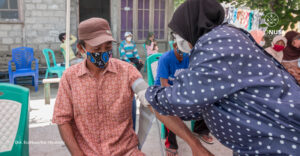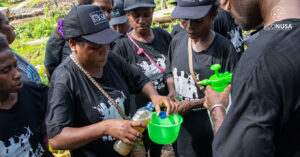
Plastic waste discarded to the oceans are not only damaging the environment, but also harmful to human life. A research conducted by Manullang (2021) reported that there were 2.359 waste floating in Ambon Bay, Maluku Province, with plastic as the most common type of waste.
Furthermore, the research concludes that Ambon Bay has been exposed by plastic waste that comes from human land-based activities. This caused Ambon Bay to be classified as ‘very dirty’.
Not only in Maluku, a research conducted by Tanan (2021) reported that waste in Jayapura City, Papua Province, in 2017-2020 was increasing. In 2017 waste volume per day reached 292 tons, and kept rising up to 344,3 tons per day in 2020. Another research done by Kalor (2021) argued that water in Youtefa Bay in Jayapura has been contaminated by plastic debris.
Read More: Podomoro Students Fights against Plastic at Teluk Naga
Various efforts were made to reduce and slow down the discarded rate of plastic waste to the oceans. NPAP reports (2021) about behavior change in handling plastic waste suggested one of the key focus areas is youth education.
Green Moluccas, one of the Civil Society Organization based in Ambon Bay, makes serious efforts in handling waste by educating children around the church in Maluku. Not only by education, Green Moluccas also conducted coastal cleaning up with Divers Clean Action (DCA) on January 28, 2022 in Hative Besar village.
Addressing waste problems, the Mayor of Ambon cooperated with the United States Agency for International Development (USAID) and Ministry of National Development Planning (Bappenas) in Clean City Blue Ocean (CCBO) programs.
Read More: Octopus, One of Indonesia Major Export Commodities
Quoted from ambon.go.id, Urban Environment Director of USAID, Ryan Waddle, said that in the implementation, CCBO will cooperate with local organizations through grant programs to improve capacity building in the community and promote social behavior change, also developing the recycling market on a local and national level.
To slow down the discarded rate of plastic waste, the Mayor of Jayapura published Mayor Instructions Number 1/2019 about the Implementation of Alternative Shopping Bag as Substitute of Plastic Bag. The research by Tanan (2021) mentioned that the impact of these Instructions is the reduction of plastic bag use especially in the modern market.
In addition to the Government’s effort, there is also coastal cleaning-up conducted by Klub Jaga Laut from Cenderawasih University in cooperation with the community in Youtefa Bay. Research by Kalor (2021) mentioned that this action will create a group of sea guardians as part of Enggros village programs.
Read More: Young People, Key to Environmental Success in Namatota
Youth education is also conducted by EcoNusa foundations through a program called School of Eco Diplomacy (SED). The program aims to improve the youth capacity to be more aware about the importance of the environment. There are 164 SED graduates who are expected to find their interest in environmental issues, including plastic waste, and express it to the stakeholders from local to international levels.
Data from Ministry of Environment and Forestry website shows that the amount of waste on 2021 in Western side of Indonesia (Sumatra, Kalimantan, Java, and Bali) was about 23.8 million ton per year, whereas in Eastern side of Indonesia (NTB, NTT, Sulawesi, Maluku, and Papua) the amount of waste 2.6 million ton per year.
Editor: Leo Wahyudi & Lutfy Putra




